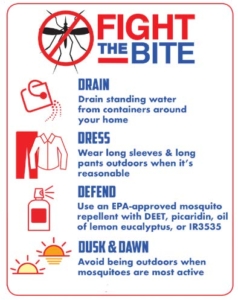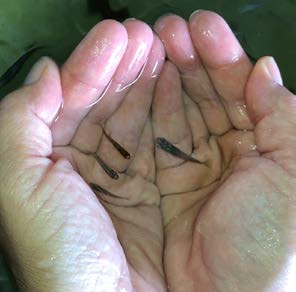Tips for Dealing with Summertime Mosquitoes
New to Southwest Florida?
Tips for Dealing with Summertime Mosquitoes
by Patrick Linn, MS, MSHAPI
Executive Director, Collier Mosquito Control District
If you’re new to Southwest Florida, it’s likely that you moved here during the beautiful winter days that bring sunny skies, balmy breezes, and low humidity. It’s truly paradise that time of year. But has anyone told you about our summers?
It’s hot. It’s rainy. It’s humid. And we have mosquitoes -lots of them. There are more than 40 species in our county.
Our summertime environment increases the likelihood for mosquito bites and for the possibility of contracting a disease they can transmit, including Dengue fever, Chikungunya, and West Nile virus.
The Collier Mosquito Control District follows the best practices of integrated mosquito management – including trapping and testing mosquitoes to protect the public against the threat of disease. Our mission is not to eradicate mosquitoes, but one of protecting public health and controlling nuisance mosquitoes.
We provide the suggestions below as a means to help you #FightTheBite this summer.
Protect yourself with the 5 Ds

• DRAIN – This simple action cannot be emphasized often enough. Develop a habit to empty containers of standing water weekly. Mosquitoes deposit their eggs in still, standing water and in a brief 5–7 days later, those eggs are adult, biting mosquitoes. If draining the water isn’t an
option, we recommend adding Mosquito Bits to the water, which kills mosquito larvae that may be present. When used as directed, the product is harmless to pets, people, plants, and fish. The product can be found in gardening areas at home improvement and hardware stores, and online retailers.
• DRESS – When it’s reasonable, cover exposed skin to block mosquitoes’ access to your skin.
• DEFEND – Protect yourself. When used as directed, these Environmental Protection Agency recommended repellents are proven safe and effective:
* DEET
* Picaridin
* Oil of lemon eucalyptus
* IR3535
• DUSK & DAWN – If possible, avoid outdoor activities during these times when mosquitoes are most actively flying and feeding.
Mosquito problems? Let us know!
Communication with our residents plays an important role in our daily surveillance data. Resident’s reports are received daily through phone calls or via the form on our website. The
information is submitted to the Operations Department, where the data are reviewed to determine where and when to plan a treatment mission. Decisions are made daily: the District does not
have a treatment schedule.
Complete a Mosquito Report form on our website (www.cmcd.org). It’s optional to request a Field Technician visit to help determine possible mosquito habitat. Telephone us at (239)436-1000.
Pick up free mosquitofish for your standing water
 For larger areas of long-term/seasonal standing water (e.g., swales, borrow pits, flooded yards),
For larger areas of long-term/seasonal standing water (e.g., swales, borrow pits, flooded yards),
the District offers residents a free biological control method: Gambusia holbrooki, or “mosquitofish.”
Native to Southwest Florida, mosquitofish can consume large quantities of mosquito larvae daily. They are a small but hearty freshwater fish in the guppy family, but don’t let their small size fool you! As soon as they are introduced to their new home, they will instantly go to work gobbling up mosquito larvae.
Please call us to schedule an appointment for the pick-up; a staff biologist will determine the number of fish you need after obtaining information from the property owner.
So as the summer months heat up, you can follow the 5 Ds, let us know your mosquito problems, acquire some mosquitofish, and the District will continue its mission to suppress both disease carrying and nuisance mosquitoes.
Questions? Call us at (239) 436-1000 or visit our website:
www.cmcd.org.





Leave a Reply
Want to join the discussion?Feel free to contribute!